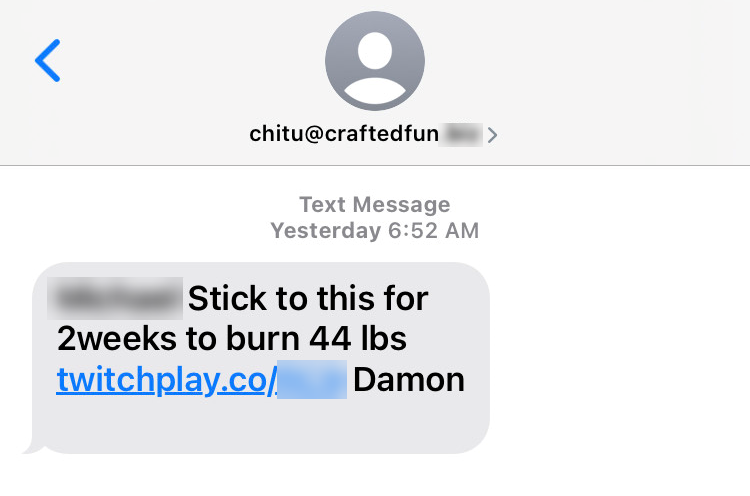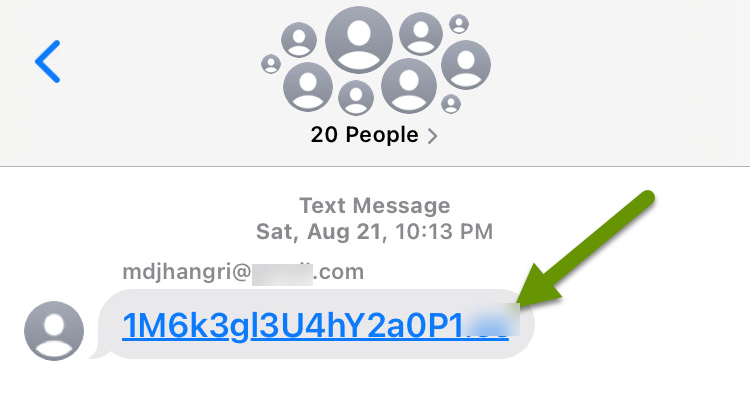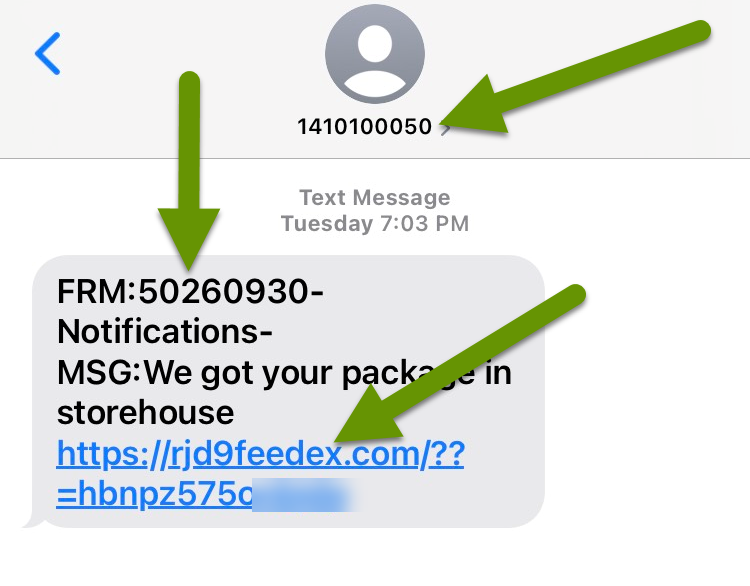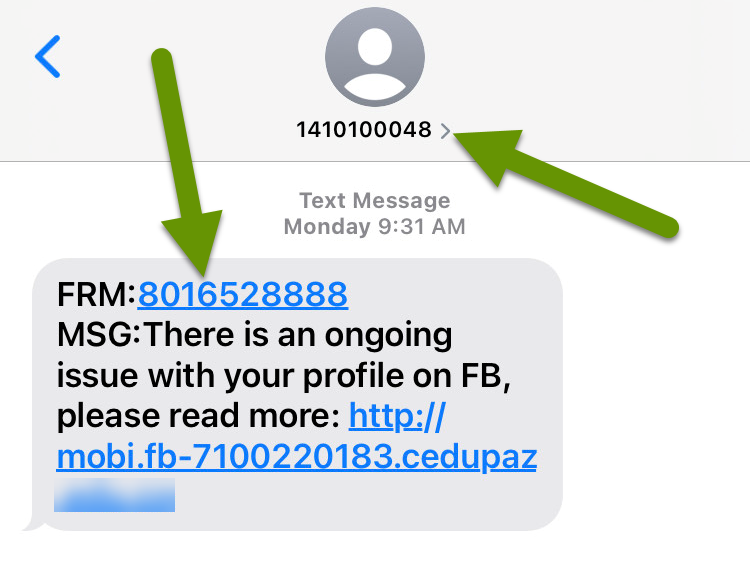How to Identify Text Messages that are Really SPAM
Everyone who has a cell phone has likely been the recipient of SPAM text messages which have recently become more common. These messages are being added to the already sometimes overwhelming number of SPAM emails and calls people deal with on a daily basis. Like SPAM calls and emails, there are things to look for to help determine when an incoming text message is really SPAM.
This post discusses a few things to help you identify when incoming text messages are actually SPAM that should be deleted.
How to Identify Text Messages that are Really SPAM
There are several different things you can look for when an incoming text message arrives to help determine if the message is likely to be SPAM. If you aren't sure, it is a good idea to err on the side of caution and delete the message. At the very least, do not click on any links included in the message.
The message came from an email address you don't know
The big giveaway here is getting a text message from an email. While this can happen legitimately, it is pretty uncommon. If you do receive a message from someone, and it is from an email address rather than a contact's number, ask the following things:
Do you recognize the email? If not, it is most likely SPAM and you should delete it without opening it. If you do recognize the email, it's possible someone you know did send you something and for some reason they sent it via their email address. If possible at all, contact the person outside that message string and see if they sent you something. Always use caution opening the message and refrain from clicking on any links.
Is the email a mess of letters and numbers that the average person would probably never use? If it is, this is almost certainly a SPAM message and you should delete it without opening it. Email addresses are created like this because the creator does not intend to use it for long. Instead, it is created as a throw-away email they can use to SPAM people before abandoning the email and creating a new one to start the cycle again.
Does this person normally email you or send messages via text? Anytime something is out of the ordinary it is a sign that you need to stop and consider if it is legitimate. For instance, if someone always texts you from their phone number and you suddenly get a text message from their email, reach out and ask them if the message is legitimate or simply delete it. If they meant to send it to you, they will send it again!
Here's an example of a SPAM message being sent from email:

The message has a lot of spacing so you cannot see the content or there is no content
This type of message is one we frequently see with messages claiming to be from Amazon or AT&T wanting to let us know we have won a prize. The message typically shows up with only "Amazon - winner" visible. Unfortunately, the sender formats the message this way so recipients are forced to open the message to see the content. The sender is banking on our curiosity getting the best of us but the best thing you can do is delete a message like this without opening it.
Luckily, there are clues that this interaction is SPAM. The biggest thing that gives this away as SPAM is that interactions from Amazon typically come in one of two ways, neither of which is text messaging. Most communications from Amazon are going to be via email, as in thank you for your order, your order is out for delivery, etc. The second most common form of communication from Amazon is going to come from notifications via the app if you have it installed on your smartphone. So when you receive messages like this, question whether or not this is a normal form of communication. Any time it is unusual, delete the message without opening it.
Another type of SPAM text message is those without any actual content - just random links. These are easier to spot as SPAM, but are worth mentioning and you should definitely delete these without clicking on the links.

The sender of the message is a series of random numbers and/or is from a company you do not do business with
Receiving a message from an odd series of numbers does not automatically make the message SPAM. For instance, looking at my phone I have legitimate messages from the following random numbers:
- 888777 - Nixle alerts for weather, traffic, etc.
- 94379 - Kaiser Permanente
- 692484 - Credit card notifications
- 86753 - Venmo
However, messages from odd strings of numbers are also often used for SPAM. These SPAM text messages often come pretending to be delivery updates, banking notifications or account login notifications. Keep in mind, many of these kinds of notifications, when legitimate, will come from the company in an email. For instance, almost everything you order online sends an email when the order is placed and when the order has shipped along with a tracking number to follow its progress.
That does not mean you will never get a text notification, but it is less likely. The big thing to remember is most companies do not default to sending you text notifications unless you sign up for them.
If you get a text notification from a number you do not recognize, or a company you did not sign up for text notifications, it is most likely SPAM. It is best to delete these messages without opening them.
In the example below you can see the sender is pretending to be FedEx. The two clues that this is SPAM are how the notification is coming from a different number than the from section states it is, AND the fact that FedEx is misspelled in the included link.

In this example, once again the sending message does not match the numbers listed in the from section. Also, the link is obviously not a link Facebook would use though that is who the sender is pretending to be sending on behalf of.

There are several ways to spot a SPAM text message and as the frequency of these continues to rise, it is important to know what to look for to better protect yourself. Check to be sure the message is not coming from an unknown email or an email from someone you do know, but who normally sends messages via their phone number. If a message has nothing but a link, or has a bunch of spacing so you have to open the message to see the content, this is also probably SPAM. Lastly, if you receive a message from a random string of numbers you don't recognize, or from a company you did not sign up for notifications from, it is likely SPAM.
As always, it pays to err on the side of caution and delete items you suspect are SPAM!

